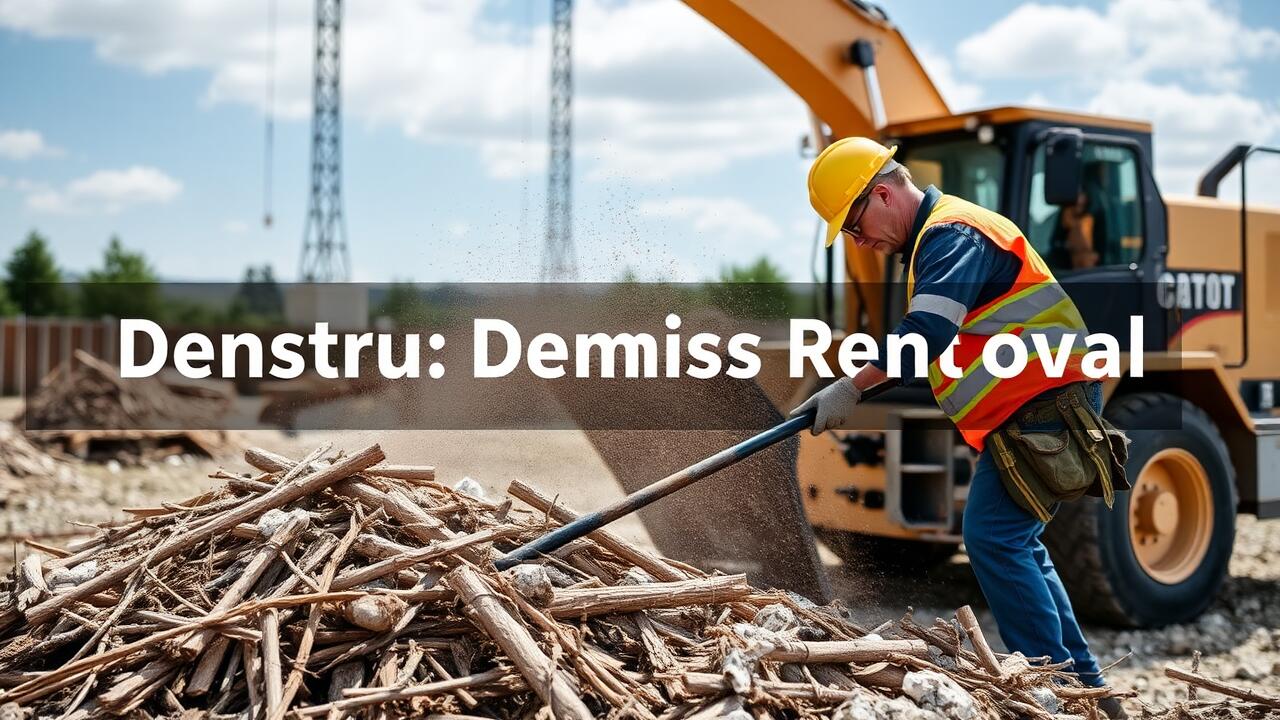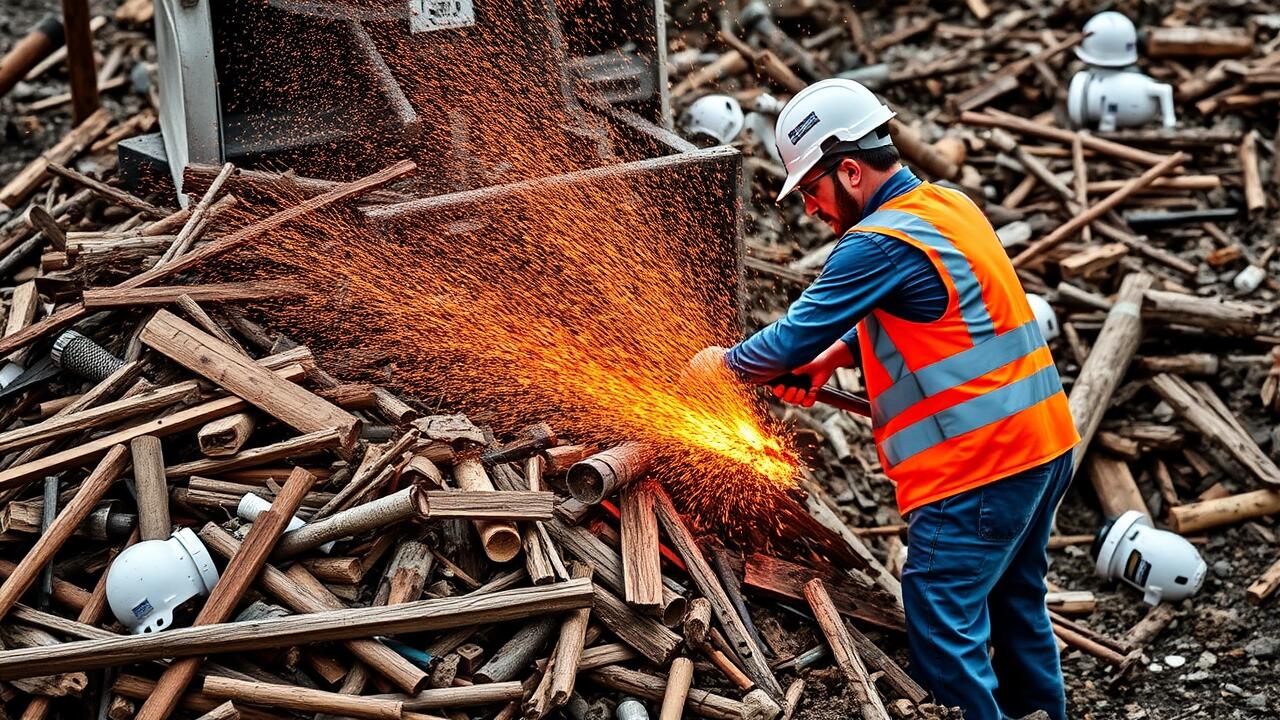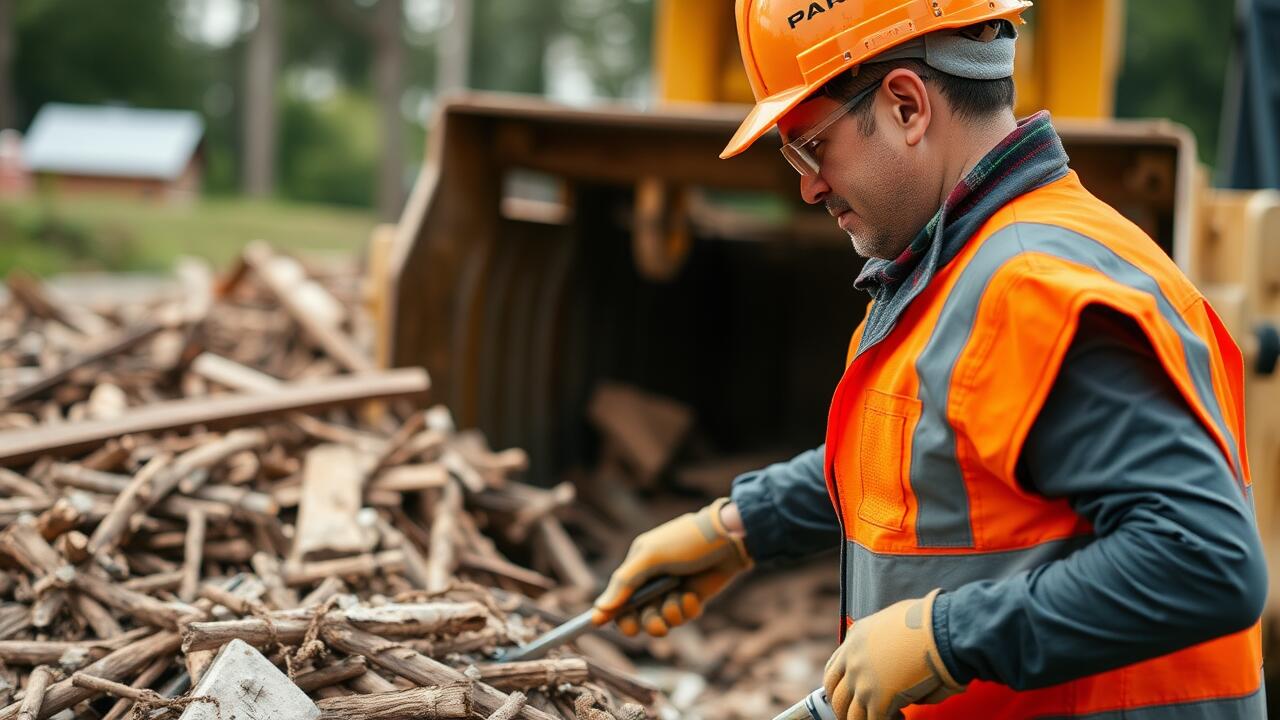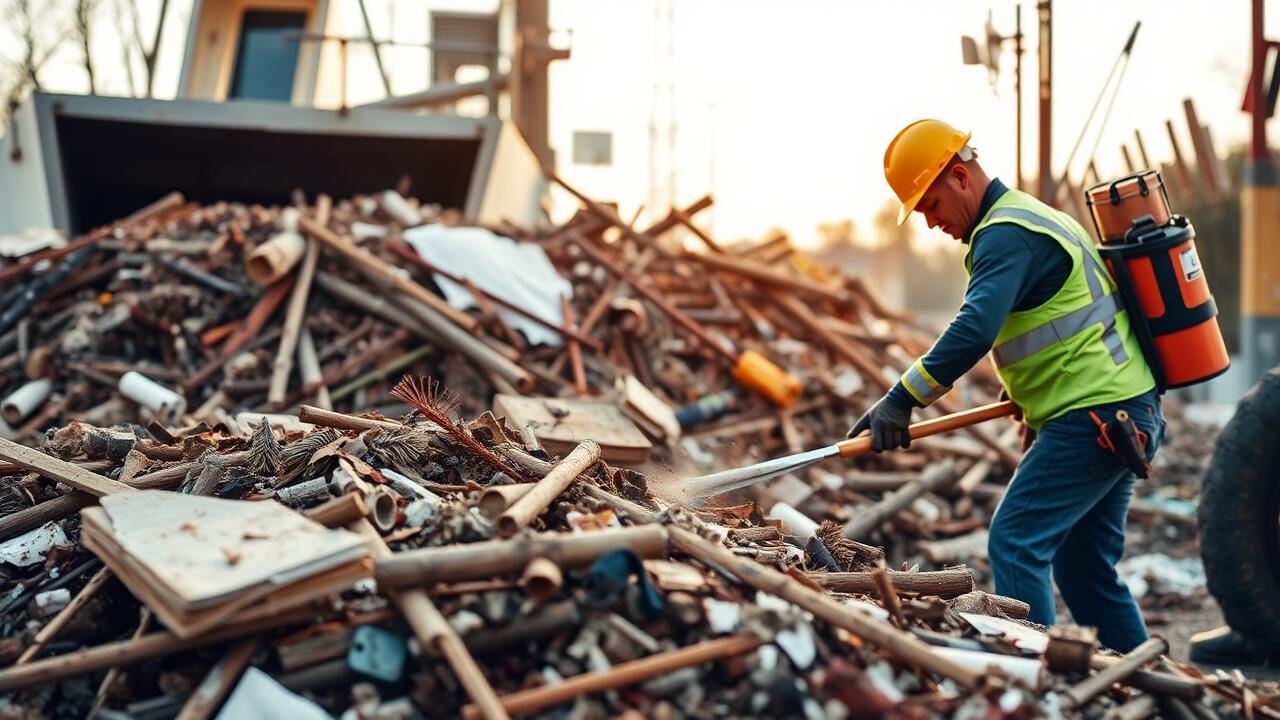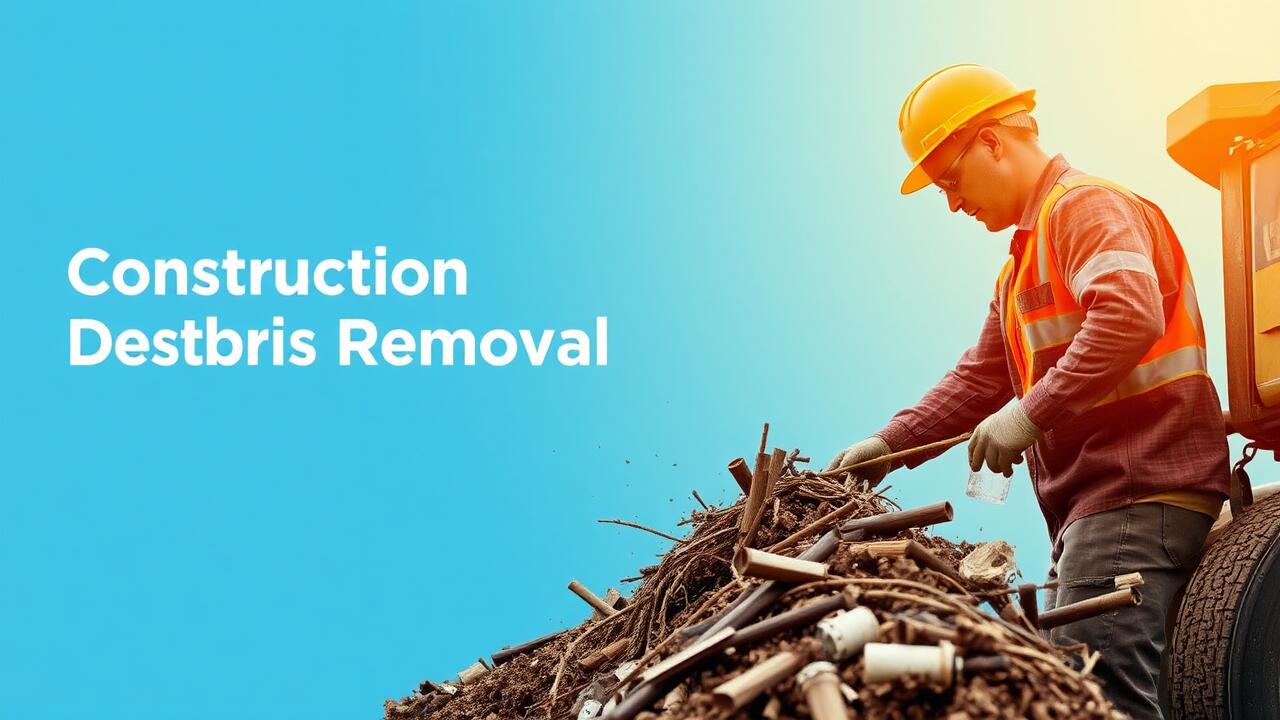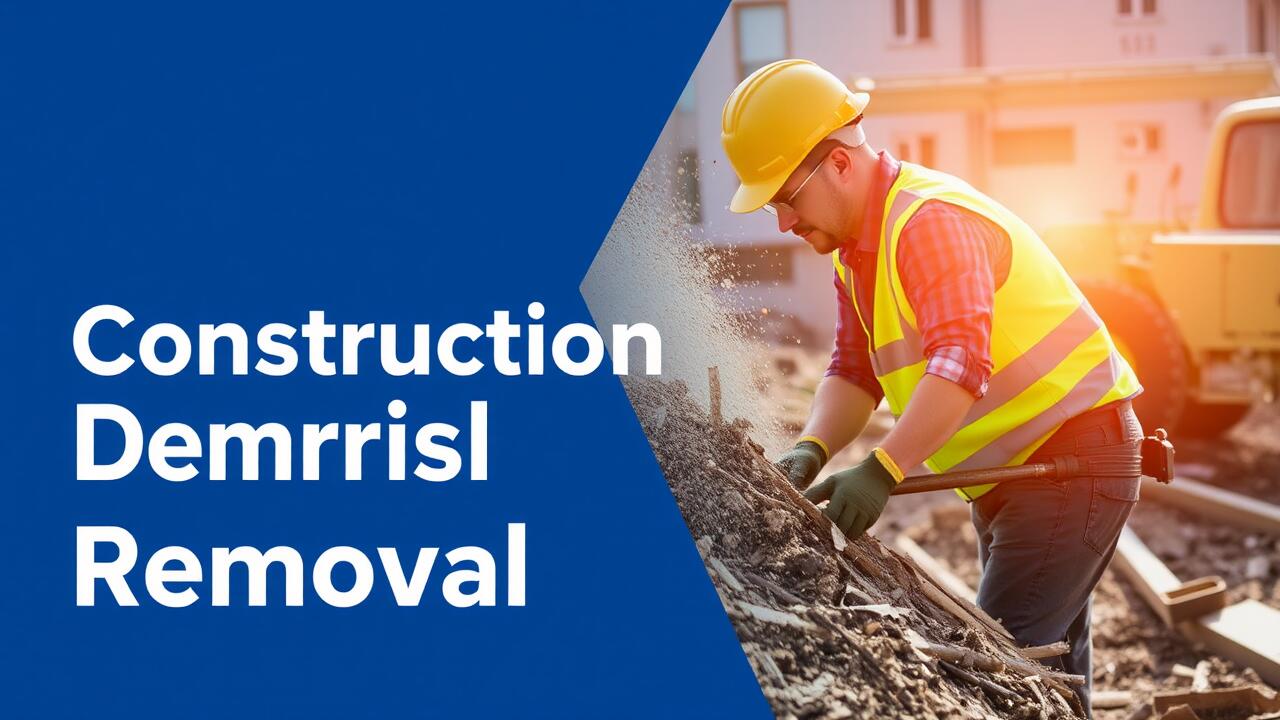
The Recycling Process for Concrete and Masonry
Recycling concrete and masonry begins with the collection of construction debris. The process typically involves the transportation of materials from construction sites or demolition projects to recycling facilities. At these locations, debris is sorted to separate reusable concrete and masonry from other waste. This initial step is crucial as it ensures that recyclable materials are not contaminated, which would complicate the recycling efforts.
Once sorted, the recyclable concrete and masonry are crushed and processed into smaller pieces. This crushed material can then be used in various applications, such as aggregate for new concrete, road base, or fill material. Implementing a comprehensive recycling process not only reduces landfill waste but also helps conserve natural resources. Many locally focused services, like Construction Debris Removal South Mountain, Phoenix, play a key role in facilitating this essential process, ensuring effective management of construction waste.
Steps Involved in Recycling
The recycling process for concrete and masonry begins with careful collection and transportation of the materials to a recycling facility. This step is crucial as it ensures that contaminants, such as metals or hazardous substances, are screened out. Once the debris arrives at the facility, it is sorted and crushed into smaller pieces, facilitating easier handling and processing. Various methods and technologies may be employed to achieve this, ensuring that the quality of the recycled material meets industry standards.
After the crushing process, the recycled materials undergo further screening to separate different sizes and types of aggregates. This ensures that the final product can be used effectively in new construction projects. Recycled concrete and masonry can serve various purposes, from creating new concrete mixes to forming base materials for roads. Construction Debris Removal South Mountain, Phoenix, plays a vital role in managing this waste stream, promoting sustainability in construction practices while supporting local recycling initiatives.
Benefits of Recycling Concrete and Masonry Debris
Recycling concrete and masonry debris presents significant economic advantages. Utilizing recycled materials can lower the cost of construction projects. It reduces the expenses associated with landfill disposal and minimizes the need for new raw materials. This process not only saves money but also promotes a more sustainable approach in the industry. Additionally, many contractors are discovering that using recycled aggregates can provide comparable quality and durability to traditional materials. This adaptability is particularly beneficial for projects in urban areas, where land can be scarce and expensive.
Environmental benefits are equally noteworthy. Recycling concrete and masonry minimizes the demand for landfill space, which is increasingly becoming a concern in many regions. It significantly decreases greenhouse gas emissions associated with the production and transportation of new materials. Adopting practices like Construction Debris Removal South Mountain, Phoenix, also encourages the responsible use of resources while fostering a circular economy. By focusing on recycling, the construction industry can play a vital role in reducing its ecological footprint and conserving natural resources for future generations.
Economic and Environmental Advantages
Recycling concrete and masonry debris presents significant economic advantages. It reduces the need for virgin materials, thereby lowering costs associated with extraction and transportation. By incorporating recycled materials into new construction projects, companies often find savings in both labor and material expenses. This approach also supports local economies by fostering markets for recycled products and creating jobs in the recycling sector. For instance, businesses engaged in Construction Debris Removal South Mountain, Phoenix, can enhance their service offerings by focusing on sustainable practices.
In addition to economic benefits, recycling construction waste contributes positively to environmental sustainability. It minimizes the volume of waste sent to landfills, providing a solution to the growing waste management crisis. Furthermore, reusing materials lessens the environmental impact of mining and processing new materials, resulting in lower greenhouse gas emissions. This practice aligns with broader sustainability goals and promotes responsible resource consumption. Companies in the region utilizing Construction Debris Removal South Mountain, Phoenix, are not only optimizing waste management but also playing a pivotal role in environmental conservation efforts.
Challenges in Handling Concrete and Masonry Waste
Handling concrete and masonry waste poses several challenges that require attention. One significant issue is the sheer volume of debris generated during construction and demolition projects. This large quantity can overwhelm local waste management systems that may not be equipped to process such materials efficiently. Additionally, construction debris often contains contaminants, making it more complicated to recycle. The presence of hazardous materials such as asbestos can further complicate the disposal process, requiring specialized handling and additional costs.
Another challenge is the transportation of heavy materials. Concrete and masonry debris can be cumbersome and difficult to move, leading to increased labor costs and the need for specialized equipment. Companies offering services such as Construction Debris Removal South Mountain, Phoenix, must ensure they have the capacity and resources to handle these materials effectively. Regulatory compliance also factors into the challenge, as local laws and regulations regarding waste management can vary significantly. Navigating these requirements can lead to delays and additional expenses for contractors.
Common Obstacles and Solutions
Handling concrete and masonry waste presents numerous challenges for businesses and municipalities. One major obstacle is the lack of infrastructure for efficient processing and recycling of these materials. Many regions still rely on landfills, leading to increased disposal costs and environmental concerns. Limited access to recycling facilities can hinder the separation and treatment of concrete and masonry debris, reducing the potential for recovery and reuse.
Addressing these challenges involves developing better logistics for debris management. Partnerships with local recycling centers can enhance the efficiency of concrete and masonry waste processing. Encouraging more contractors to invest in proper disposal methods can also play a critical role. In areas like South Mountain, Phoenix, investing in reliable companies for Construction Debris Removal South Mountain, Phoenix, can streamline cleanup efforts and promote sustainable practices for dealing with construction waste.
FAQS
What types of materials are considered concrete and masonry debris?
Concrete and masonry debris typically include materials like broken concrete, bricks, mortar, and stone that are produced from construction, renovation, or demolition activities.
How is concrete and masonry debris recycled?
The recycling process for concrete and masonry involves several steps such as collection, sorting, crushing, and screening, which help to produce recycled aggregates that can be used in new construction projects.
What are the benefits of recycling concrete and masonry debris?
The benefits of recycling include reducing landfill waste, conserving natural resources, lowering construction costs, and minimizing environmental impact by decreasing greenhouse gas emissions associated with new material production.
What challenges are associated with recycling concrete and masonry debris?
Common challenges include contamination from non-recyclable materials, the high cost of recycling operations, and the need for specialized equipment to process the debris effectively.
Are there specific regulations governing the recycling of concrete and masonry debris?
Yes, regulations can vary by region, but they often include guidelines on the proper handling, processing, and disposal of construction debris to ensure environmental safety and compliance with local standards.
